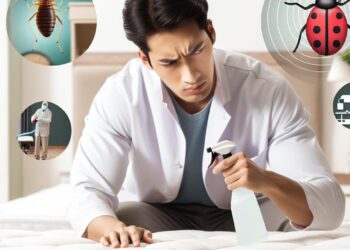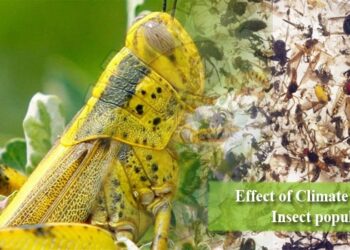“Balancing the Pros and Cons of Natural and Organic Pest Control: A Comprehensive Guide”.
Pest control is a crucial aspect of maintaining a healthy and hygienic environment. There are many different methods for controlling pests, including chemical pesticides, natural remedies, and organic techniques. While chemical pesticides have been the go-to solution for many years, the popularity of natural and organic pest control methods has been on the rise. In this article, we will discuss the benefits and drawbacks of natural and organic pest control methods.
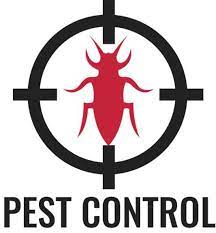
What is Natural Pest Control?
Natural pest control refers to the use of natural remedies and techniques to control pests. These remedies are typically derived from natural sources such as plants, herbs, and essential oils. Examples of natural pest control methods include using diatomaceous earth, neem oil, garlic spray, and vinegar.
Benefits of Natural Pest Control
One of the main benefits of natural pest control methods is that they are environmentally friendly. Unlike chemical pesticides, natural remedies do not harm the environment or other non-target organisms. Natural pest control methods are also safer for humans and pets, as they do not contain harmful chemicals.
Another benefit of natural pest control is that it is cost-effective. Many natural remedies can be made at home using ingredients that are readily available. This can save homeowners money on expensive pest control services.
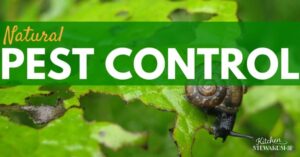
Drawbacks of Natural Pest Control
While natural pest control methods have their benefits, they also have some drawbacks. One of the main drawbacks is that they may not be as effective as chemical pesticides. Natural remedies may take longer to work or may not work at all in some cases.
Another drawback of natural pest control methods is that they may require more frequent applications. This can be time-consuming and may not be practical for some homeowners.
What is Organic Pest Control?
Organic pest control refers to the use of organic products to control pests. These products are typically derived from natural sources but have been certified as organic by a regulatory body. Examples of organic pest control products include insecticidal soaps, pyrethrin, and Spinosad.
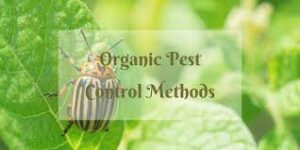
Benefits of Organic Pest Control
One of the main benefits of organic pest control methods is that they are safe for the environment and non-target organisms. Organic products have been certified as safe for use and do not contain harmful chemicals.
Organic pest control methods are also effective at controlling pests. These products are specifically designed to target pests and can be just as effective as chemical pesticides.
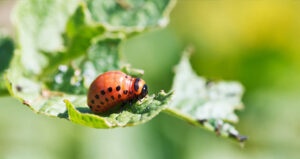
Drawbacks of Organic Pest Control
While organic pest control methods have their benefits, they also have some drawbacks. One of the main drawbacks is that they can be expensive. Organic products are often more expensive than chemical pesticides and may not be practical for homeowners on a budget.
Another drawback of organic pest control methods is that they may require more frequent applications. This can be time-consuming and may not be practical for some homeowners.
When it comes to pest control, there are many different methods to choose from. While chemical pesticides have been the go-to solution for many years, natural and organic pest control methods offer many benefits. Natural and organic methods are environmentally friendly, safer for humans and pets, and can be just as effective as chemical pesticides. However, these methods may not be as practical for some homeowners and may require more frequent applications. Ultimately, the choice between natural, organic, or chemical pest control methods will depend on your specific situation and preferences.
Choosing the Right Pest Control Method
When it comes to choosing the right pest control method, there are several factors to consider. The type of pest you are dealing with, the severity of the infestation, and your budget are all important considerations.
For minor pest problems, natural and organic pest control methods may be effective. These methods are safe, cost-effective, and environmentally friendly. However, if you are dealing with a severe infestation, chemical pesticides may be necessary to get the problem under control.
It is important to note that while natural and organic pest control methods are generally considered safe, they can still be harmful if not used correctly. Always follow the instructions carefully and use protective equipment when necessary.
In addition, it is always a good idea to consult with a pest control professional before attempting to treat a pest problem on your own. A professional can help you identify the type of pest you are dealing with and recommend the most effective treatment options.
Natural and organic pest control methods offer many benefits, but they may not be the best choice for every situation. When choosing a pest control method, it is important to consider the type of pest you are dealing with, the severity of the infestation, and your budget. Whether you choose natural, organic, or chemical pest control methods, it is important to always use caution and follow the instructions carefully to ensure the safety of yourself, your family, and the environment.
Examples of Natural and Organic Pest Control Methods
Here are some examples of natural and organic pest control methods that can be effective against common household pests:
- Diatomaceous earth: This is a natural substance made from the fossilized remains of tiny aquatic organisms. It can be effective at controlling pests like ants, cockroaches, and fleas. Diatomaceous earth works by dehydrating the pests, causing them to die.
- Neem oil: This is an extract from the neem tree that has insecticidal properties. It can be effective against a wide range of pests, including aphids, whiteflies, and spider mites. Neem oil works by disrupting the pest’s hormonal system, making it difficult for them to feed and reproduce.
- Garlic spray: This is a natural repellent that can be effective against pests like aphids, caterpillars, and beetles. Garlic spray works by emitting a strong odor that pests find unpleasant.

- Vinegar: This is a natural cleaning agent that can also be effective against pests like ants and fruit flies. Vinegar works by disrupting the pest’s sense of smell, making it difficult for them to navigate.
- Insecticidal soap: This is a natural soap that contains fatty acids. It can be effective at controlling pests like aphids, spider mites, and mealybugs. Insecticidal soap works by dissolving the pest’s protective coating, causing them to dehydrate and die.
- Pyrethrin: This is a natural insecticide derived from chrysanthemum flowers. It can be effective against a wide range of pests, including mosquitoes, flies, and roaches. Pyrethrin works by disrupting the pest’s nervous system, causing paralysis and death.
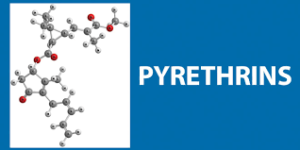
- Spinosad: This is a natural insecticide derived from soil bacteria. It can be effective against pests like thrips, caterpillars, and leafminers. Spinosad works by disrupting the pest’s nervous system, causing paralysis and death.
Conclusion
Natural and organic pest control methods offer many benefits, but they may not be the best choice for every situation. When choosing a pest control method, it is important to consider the type of pest you are dealing with, the severity of the infestation, and your budget. Whether you choose natural, organic, or chemical pest control methods, it is important to always use caution and follow the instructions carefully to ensure the safety of yourself, your family, and the environment.




